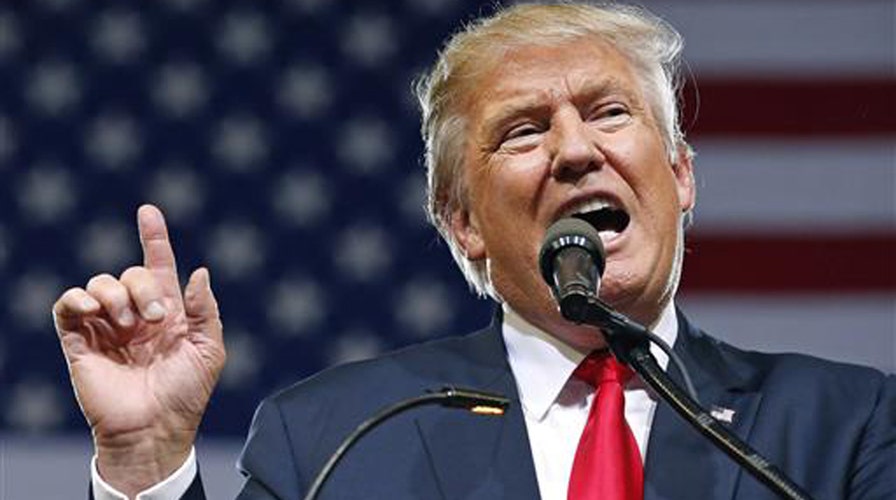Trump doubles down on Muslim ban following Orlando massacre
Campaign spokesperson Katrina Pierson discusses the impact of the terror attack on the 2016 race
Donald Trump suggested Sunday that the U.S. start “profiling” people inside the country to thwart terrorism, calling it a hateful but “common sense” tactic, in the aftermath of recent terror attacks.
"I think profiling is something we're going to have to start thinking about as a country," Trump said on CBS' "Face the Nation." "I hate the concept of profiling, but we have to start using common sense.”
The presumptive GOP presidential nominee also argued that other countries, including Israel, profile “and they do it successfully.”
Trump, as he has frequently argued, said radical Islamic groups are creating “big problems.”
However, he didn’t directly say those groups should be the sole focus of profiling -- a strategy in which individuals or groups are targeted for additional law-enforcement scrutiny because of race or other characteristics.
Omar Mateen, the shooter in the June 12 massacre at the Pulse nightclub in Orlando, Fla., was a radicalized Muslim and the subject of two FBI investigations into possible connections to terrorism.
Mateen pledged his allegiance to the Islamic State terror group, even during the attack in which he fatally shot 49 people and wounded dozens of others inside the gay nightclub before being killed by police.
This is not the first time Trump has made controversial comments related to terrorism and radical Islam, particularly after the Orlando attack and the 2015 Paris and San Bernardino, Calif., strikes, all connected to ISIS and radicalized Muslims.
Trump, a billionaire businessman and first-time candidate, told the Fox Business Network in October 2015 that the U.S. should “absolutely” shut down mosques in the fight against ISIS, if it had the legal authority and as France and Britain have attempted.
And he has been supportive of a post-9/11 effort between the FBI and the New York City police department in which mosques were put under surveillance. The effort apparently ended in 2014 under Democratic Mayor Bill de Blasio.
"You’re going to have to watch and study the mosques, because a lot of talk is going on at the mosques," Trump told MSNBC in November. "In the old days, meaning a while ago, we had great surveillance going on in and around mosques in New York City.”
In the wake of the 2015 attacks and after the Orlando massacre, Trump called for a temporary ban on all Muslims coming into the United States until the government improved its vetting process.
The idea was widely criticized last year and last week.
“I’ve talked before about how this approach is un-American. It goes against everything we stand for as a country founded on religious freedom. But it is also dangerous,” said presumptive Democratic presidential nominee Hillary Clinton, Trump’s likely general election rival.
And House Speaker Rep. Paul Ryan, R-Wis., last week repeated his disapproval of such a ban, saying it was not “in our country's interests.”





